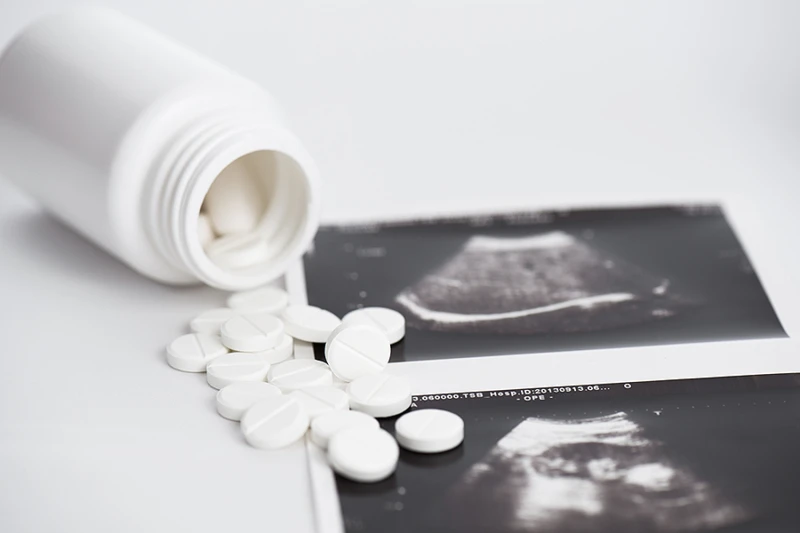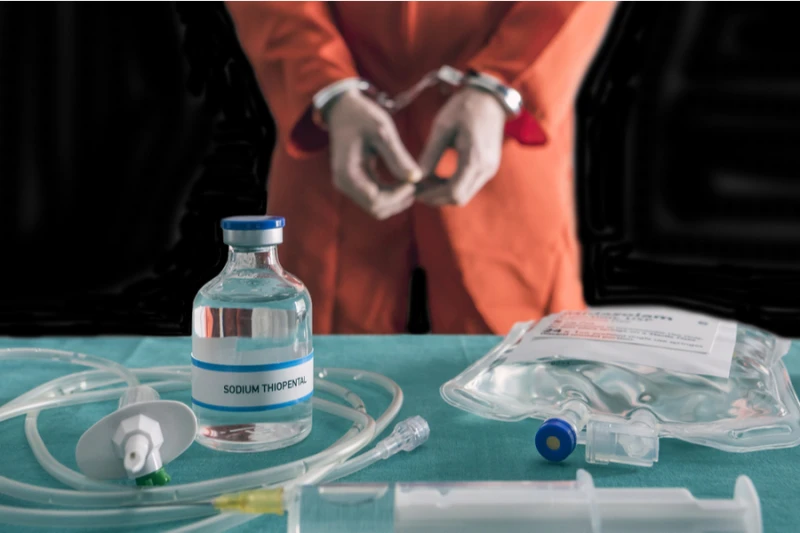

Members of Students for Liberty protest chemical abortions at March for Life, Jan. 24, 2025. / Credit: Tyler Arnold/CNA
CNA Staff, Oct 6, 2025 / 08:00 am (CNA).
California Gov. Gavin Newsom signed a bill last week allowing doctors to anonymously prescribe abortion pills, a move ethicists and medical professionals say will endanger women.
The law, designed to protect abortionists, allows them to prescribe the pill anonymously, protecting them from any professional, legal, or ethical oversight and from lawsuits filed by other states.
California abortionists are already facing lawsuits for prescribing abortion drugs in states where they are illegal. In some cases, women maintain that they were coerced or deceived into taking the drugs by the father of their unborn child.
According to the new law, the doctor remains anonymous — even to the patient being prescribed the pill. His or her identity is only accessible via a subpoena within the state of California.
Even the pharmacists dispensing the abortion drug may do so without including their names, or the names of the patient or prescriber, on the bottle.
Abandoning women
Dolores Meehan, a nurse practitioner and the executive director of Bella Primary Care in San Francisco, said the law is “codifying a type of back-alley abortion.”
“There’s no safety oversight at all from the perspective of the patient,” she told CNA. “It’s such a violation of patients’ rights.”
Father Tadeusz Pacholczyk, a senior ethicist at the National Catholic Bioethics Center, called the policy “patient abandonment.”
Health care professionals “have a duty to provide careful medical supervision and oversight to patients who seek to obtain dangerous pharmaceuticals,” he told CNA.
“This oversight calls for significant patient scrutiny, medical testing, interviews, and in-person exams to assure that any prescribed medications will be appropriate for the specific medical situation of the patient,” Pacholczyk continued. “Such attentive oversight gets thrown to the wind when lawmakers and politicians like Gov. Newsom seek to pass unprincipled laws.”
Offering anonymous prescriptions, Pacholczyk said, “is a significant dereliction of duty.”
To do so implies “a willingness to look past important procedural requirements and duties, whether it’s health screening of the woman, obtaining her emergency contact information, or assuring follow-up care and support for her,” he continued.
The policy, Pacholczyk said, “works to corrode the very core of authentic medicine.”
Meehan expressed similar concerns about the anonymity of doctors prescribing abortion pills.
She noted that licenses exist to ensure that “individuals are clear of any malfeasance or any malpractice.”
“You can look up my license, and you can look up everything about me,” she said. “But if you don’t know my license, you don’t know who I am, you can’t.”
She noted that patients are turned into consumers but without any recourse should something go wrong.
“You might as well go on Craigslist,” Meehan said.
Not an informed choice
After he signed the bill, Newsom said that “California stands for a woman’s right to choose.”
But Meehan noted that women don’t always know what they are choosing when they take the abortion pills.
“It’s not about women’s rights, and it’s certainly not about women’s safety, and women’s health, and women’s choice,” Meehan said. “Because choice should always, always, always be accompanied by informed consent.”
“The gross misunderstanding about the abortion pill is that it’s somehow easy,” Meehan said. “But what so many women don’t understand is that they’re going to miscarry at home.”
They’ll go through this “loss,” she noted, “by themselves.”
“Women are really ill-prepared for what’s going to happen in their bodies. There’s the whole idea of women’s choice, but you’re not giving them informed choice,” she said.
Pacholczyk shared similar concerns for women undergoing chemical abortions, saying that self-administered chemical abortions are a “harsh reality.”
The abortion “often takes place in a bathroom, with psychological trauma experienced by a mother who may see her aborted baby floating in a toilet,” he said.
Chemical abortions can sometimes lead to “serious medical complications — including sepsis, hemorrhage, or a need for repeated attempts to expel the child’s body” — for 1 in 10 women within 45 days of taking the abortion pill, he added.
If a woman has an ectopic pregnancy, “administering the abortion pill could increase the risk of complications or delay urgently needed treatment,” he added.
“Rather than treating women as anonymous entities and forcing them into greater isolation … mothers deserve the supportive medical attention and active care of their health care team,” he said.
“Ideally, such attentive care should help them feel strengthened and empowered to carry their pregnancies to term rather than defaulting to a fear-driven and desperate attempt to end their child’s life,” he said.
Lower standard of care
Jordan Butler, spokesperson for pro-life advocacy group Students for Life of America, called the policy “reckless.”
“Eliminating requirements for identification and pregnancy verification creates dangerous loopholes that allow sexual abusers to evade accountability,” Butler said.
Through the policy, Newsom and the abortion industry are “exploiting vulnerable women and children for profit,” she said.
Pacholczyk and Meehan expressed similar concerns for the lower standard of care women — especially vulnerable women — would receive under the law.
For women and girls facing human trafficking or coercion, protections “don’t exist,” Meehan said.
“You could have your local pedophile, a sex offender, stockpiling them,” Meehan said.
“Politicians, the media, and many in the medical profession have decided that abortion deserves an entirely different and lower standard than the rest of medicine,” Pacholczyk said.
“We would never sanction such a loose approach with other potent pharmaceuticals like opioids or cancer medications,” Pacholczyk said.
Read More













